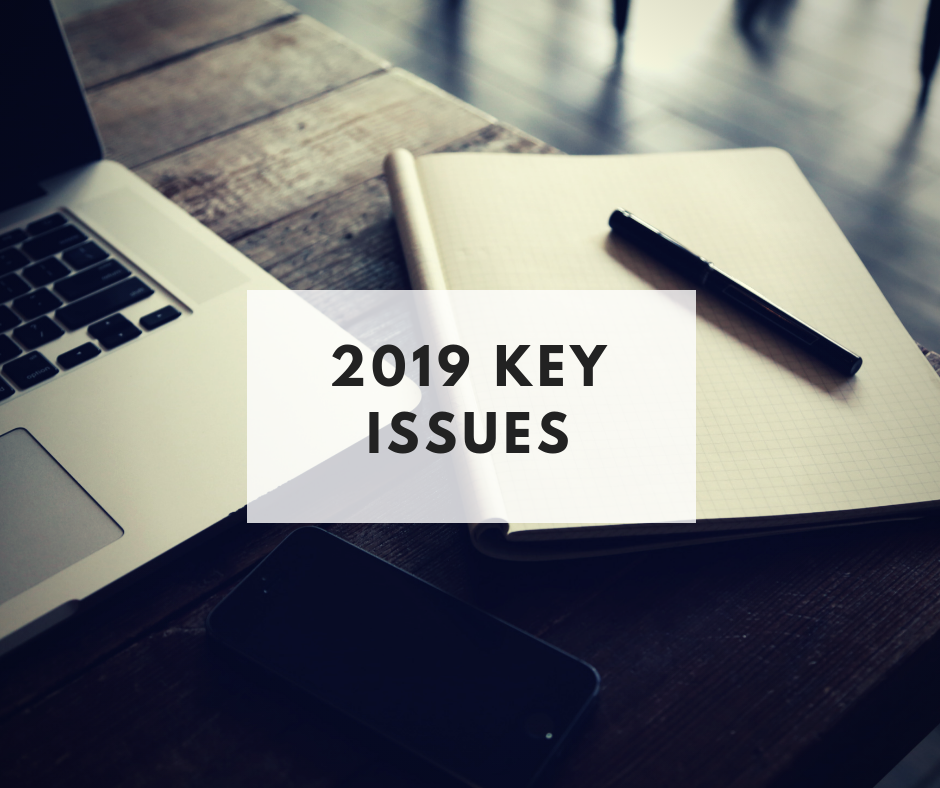Historically, the New Media Consortium (NMC) and its annual Horizon Report was a good source of information about “what’s next” and “what’s on the minds of educators”. Now that the NMC has been acquired by EDUCAUSE, I’ve started using their surveys as ways to frame perceived need (in papers and presentations) and to consider projects for Designers for Learning.
Lately, I’ve cited the EDUCAUSE 2019 Key Issues in Teaching and Learning survey of 1,400+ community members. I took a moment today to consider how my work and Designers for Learning’s programming align with the top issues from the survey. I give us a solid “A” for our effort 🙂
1. Faculty Development and Engagement
A central aim of Designers for Learning is to promote instructional design professional development through service learning. While our mission targets instructional designers, we also have many faculty members who mentor students, help design our courses/projects, and conduct research. Our hope is through their participation, their engagement in underserved needs and professional development are facilitated.
2. Online and Blended Learning
All of our programming is virtual. We use all types of collaborative tools and strategies to support our service-learning programming. Also, a recent survey of members of Designers for Learning’s network put “online learning” as a top desired professional development topic.
3. Instructional and Learning Experience Design
This one is a no-brainer. As noted above, a central aim of Designers for Learning is to promote instructional design professional development through service learning. It’s what I/we do 24/7. We also created our Design in the Open course to help those new to the field establish their professional presence.
4. Digital and Information Literacy
The second half of Designers for Learning’s dual mission is to support all aspects of literacy. Without question, digital literacy has become a key driver of our programming. I’ve delivered numerous presentations in the past year on the topic of strategies to support digital literacy, and I participate on a Digital Learning Advisory Board (DLAB) here in Chicago. Also, Designers for Learning’s Mobile Learning Strategies course is very popular, and we’re also working on a Digital Inclusion service project to launch later this year.
5. Accessibility and Universal Design for Learning (UDL)
Our recent survey of Designers for Learning’s network put accessibility and UDL as the #1 desired professional development topic. In response, we’ve been working (for months!) on a course with a volunteer team of amazing subject matter experts and designers. I hope to have it ready this spring, but I truly didn’t know what I didn’t know when we started last summer and I’m the main reason for the delay. To get over that hurdle, I’ve immersed myself in the topic for the past several months. To that end, I’m in the midst of preparing two conference presentations on the topic for the IACEA conference next week and COABE conference in April. We also submitted an AECT conference proposal for an Accessibility Design Slam Workshop that will dovetail with a planned webinar with AECT’s Design and Development division to spur the development of accessibility-related research or resource projects. With hope, by the end of these experiences I’ll feel confident to release our long-planned course!
6. Competency and New Methods of Learning Assessment
Within the adult education world, there is a constant buzz surrounding competency-based models as a pathway to high school equivalency, especially here in Illinois where the state is working through protocols aligned to recent legislation. It’s a perpetual agenda topic on monthly adult education advisory group I attend. We’re keeping a close eye on where our programming could support such an initiative.
7. Learning Analytics
We have nothing in the works regarding learning analytics as it relates to using “big data”.
8. Open Education
EVERYTHING we do is based on open education. Our largest online courses were Massive Open Online Courses (MOOCs), all of our service-learning deliverables are released as open educational resources (OER), and our recent evaluation of our OER will be published in open access journals.
9. Evaluating Instructional and Learning Innovations
We are in the middle of a multi-phase project that’s partially funded by an AECT special project and research grant to evaluate our service-learning programming and deliverables. As noted, all of our deliverables are released as OER. As there’s a dearth of research on OER quality, this evaluation will be used to refine our established service-learning crowdsourced design approach and inform future OER evaluation and redesign efforts. The findings will be released in both academic journal articles and conference presentations. Following the evaluation, an instructional design project with five project teams from two universities is currently underway as part of a mentored team-based professional development opportunity with associated research to report on the team-based design processes.
10. Academic Transformation
Designers for Learning’s work is founded in experiential learning, service learning and community engaged learning. These are all areas of high interest within colleges and universities.
11. Adaptive Teaching and Learning
While clearly on our radar as a “hot topic” in education, we don’t have programming in the works directly related to it.
12. Learning Spaces (including Makerspaces)
We have Learning Circles associated with public libraries on our radar as a potential future opportunity, but we don’t have anything currently under development.
13. Microcredentialing and Digital Badging
We issue digital badges for most of our service-learning courses and projects with Badgr. We’ve also conducted and presented research associated with the use of badges in our service-MOOCs. In our experiences, badges have been a nice vehicle to offer acknowledgment of service (e.g., to put on LinkedIn) but we aren’t using badges to credential instructional design knowledge/skills.
14. Digital Learning Architectures
I have no idea what this is. I’m seeing lots of acronyms and edu-buzz words in the description so we’ll put this in the “not in our wheelhouse” category.
15. Integrated Planning and Advising Systems for Student Success (iPASS)
Again, not in our wheelhouse.

Pingback: 58:365 | Presentation Prep – Designed to Inspire